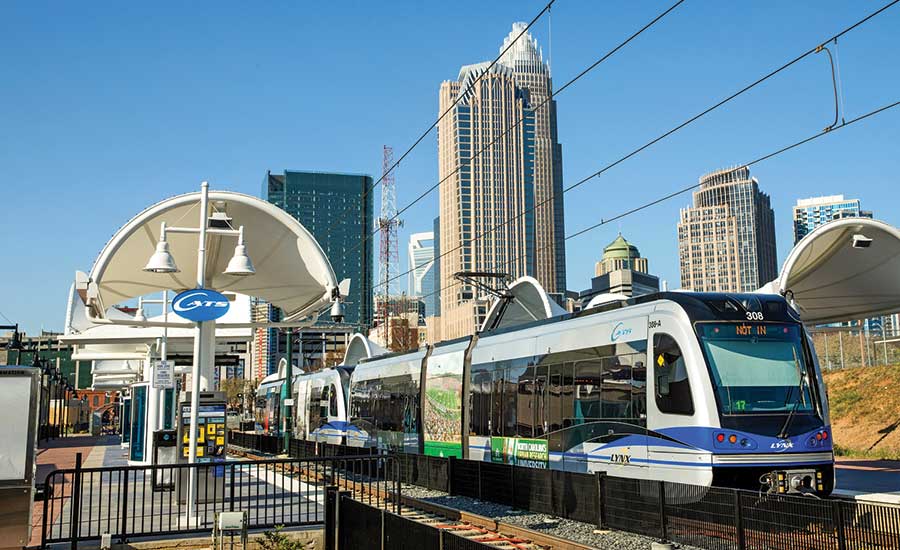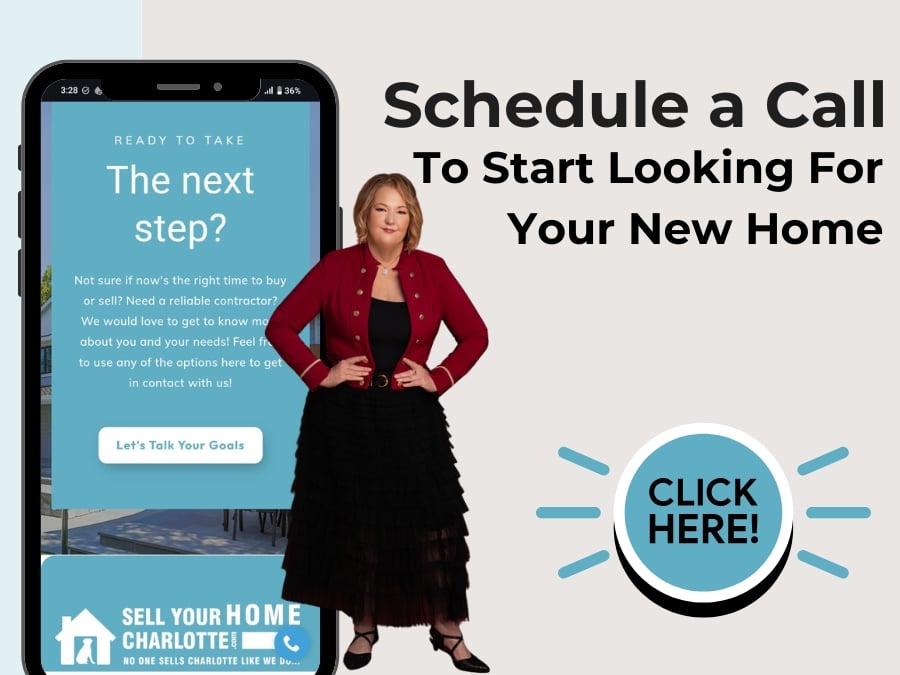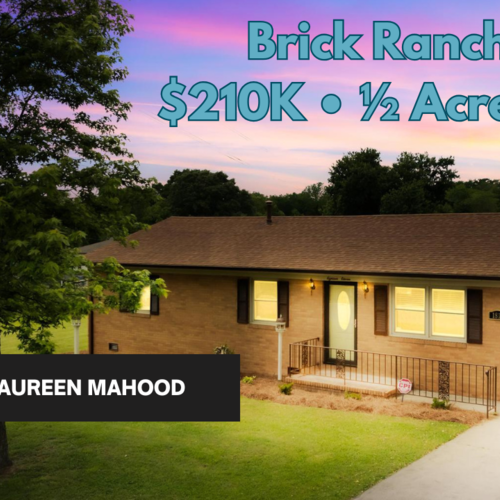Buses, But No Rail? Why East Charlotte Deserves a Real Say in Charlotte’s Transportation Future
This past weekend, I attended the East Side Intergovernmental Conference, where local leaders like Commissioner Mark Jerrell, CMS Chair Stephanie Sneed, and Charlotte Mayor Pro Tem Dante Anderson shared their vision for the future of our city. One of the most heavily discussed topics? Charlotte’s 30-year transportation plan—and the upcoming vote this November on a 1¢ sales tax to fund it.
But what I heard left me with more concerns than confidence.
The Transportation Plan: All Roads Lead to... Buses?
The current plan leans heavily—almost entirely—on bus expansion:
High-traffic routes would get buses every 15 minutes.
Lower-demand routes would run every 30 minutes.
"Mini-buses" would serve low-income neighborhoods where about 10% of residents don’t own a car—taking people to work, doctor appointments, and the grocery store.
It’s pitched as a modern solution. But if you’ve actually used these types of systems, you know how flawed they can be.
My former assistant, who has a disability, relied on a similar paratransit service. She had to schedule rides 24 hours in advance, and they’d give her a two-hour pickup window. Sometimes they showed up early. Sometimes late. Sometimes not at all. And if she wasn’t waiting outside exactly when they arrived—within that vague window—they’d leave. No text. No call. No way to fix it.
That kind of service doesn’t empower people. It isolates them.
Now imagine trying to get to work on time under those conditions.
Where’s the Light Rail?
As someone who works in real estate and economic development, I can tell you: businesses don’t build near bus stops. They build near light rail stations.
If we want East Charlotte to grow—if we want better jobs, walkable communities, and higher property values—we need rail. Buses won’t get us there.
Many people at the conference voiced the same concern: “Why is light rail taking a back seat?” We were told that a state-appointed committee—selected by the NC General Assembly in Raleigh—will ultimately decide how the money from the 1¢ sales tax is spent.
Someone asked the obvious question: "How do we get on that committee?"
No one had an answer.
And that’s a problem.
Raleigh Likes Buses. Charlotte Needs Rail.
The North Carolina General Assembly has made it clear they prefer funding buses over light rail. But Charlotte is now the 14th largest city in the U.S., and it’s still growing.
We cannot solve our traffic and growth challenges with buses alone. And we shouldn’t be creating short-term, low-wage jobs just to say we did something. The head of CATS talked about the $60,000-a-year jobs this bus plan will bring—while in the same breath, we were reminded that $60K is below the Area Median Income (AMI) in Charlotte.
How can we say this plan builds equity when it doesn’t even pay a wage you can live on here?
Why Should East Charlotte Support This?
Now we’re being asked to vote in November for a 1¢ sales tax to fund this plan. But here’s the question:
Why should East Charlotte support a tax when we have no voice in how it’s spent?
We’ve been here before—asked to buy into a plan that doesn’t reflect our needs, doesn’t invest in our growth, and doesn’t include us in the conversation.
What’s even more frustrating? East Charlotte is likely to contribute a significant portion of the revenue from this tax. Our communities have a high concentration of essential retail activity—groceries, gas stations, discount stores, and services—where residents spend daily.
In fact, according to City of Charlotte budget data, households in East Charlotte contribute disproportionately to the city’s general sales tax base compared to wealthier areas that spend more online or out of county. We’re being asked to fund a system that may not prioritize or serve our needs.
But it gets deeper. Once this tax passes, the people deciding how to spend it will not be your local city council members or even Mecklenburg County Commissioners. The authority rests primarily with the North Carolina General Assembly—a legislative body that has consistently deprioritized light rail funding for Charlotte, especially for East Charlotte. This is the same legislature that has repeatedly blocked or stalled comprehensive rail expansion.
Even though Mecklenburg is the largest county in the state, and East Charlotte has the most voters, and home to the most riders, we don’t get proportional representation on the decision-making committees that direct transit funding. These committees are typically composed of appointees—often selected by legislative leadership in Raleigh—and their decisions don’t always reflect the needs of growing urban centers like ours.
So we’re left asking:
Who are these committee members?
Why do they keep blocking light rail to East Charlotte?
And how can a plan that disproportionately taxes East Charlotte leave us with so little input?
So... Am I Saying Vote No?
I don’t know. That’s the problem.
We are being asked to vote for a 1¢ tax increase without a full understanding of what the actual plan is. I’m not against funding transportation—we desperately need a solution. But I’m not convinced this is the one.
If the plan included a real commitment to light rail for East Charlotte, I’d be a yes. If it’s just buses, I’m a no. Buses alone are not the solution. I could support a system where buses and light rail work together, but right now, only one of the three options being considered includes rail, and the one discussed most heavily at the conference? Buses.
Just look at what light rail has done for South Blvd, South End, and the North Tryon corridor up to University City. Homes and businesses exploded along those routes. Entire neighborhoods were revitalized. That kind of catalytic investment has never happened because of a bus route—and it never will.
That’s not enough.
We deserve better.
We deserve transit that’s reliable, infrastructure that attracts jobs, and a seat at the table when decisions are made about our future.
Until then, I hope everyone in East Charlotte asks the same question I’m asking now:
Why are we voting for a plan that doesn’t include us?
What Can You Do?
If you live, work, or invest in East Charlotte—your voice matters now more than ever.
- Share this post with neighbors, business owners, and community leaders.
- Demand transparency about how the 1¢ sales tax revenue will be spent—and who decides.
- Contact the NC General Assembly and ask who will be appointed to the spending oversight committee—and whether Mecklenburg will be fairly represented.
Learn more and speak up:
North Carolina General Assembly
Ask them:
Who is appointing the oversight committee after the tax passes?
Will Mecklenburg County get proportional representation?
What commitment exists to light rail expansion in East Charlotte?
We won’t fund a future that doesn’t include us.
Because silence is how we get left out.
And participation is how we get power.




